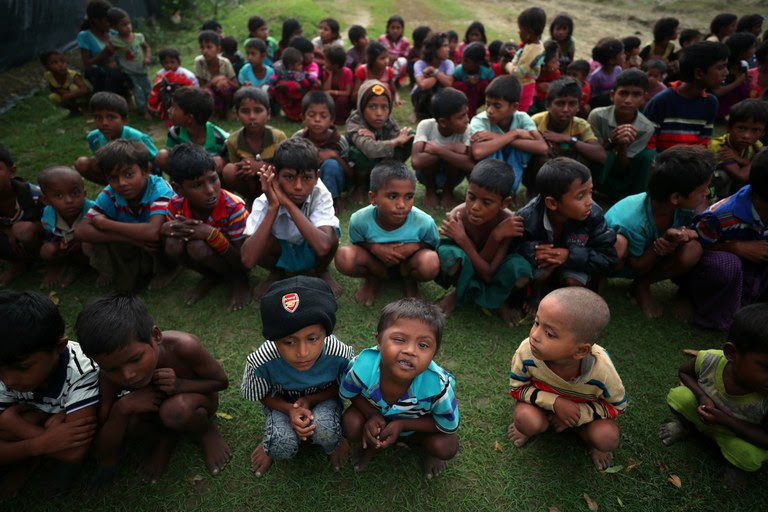By Jesmin Papri on Mar 22, 2022 Benar News
Bangladesh is pushing back against Myanmar’s recent proposal to repatriate 700 Rohingya individually and insisting on sending entire families together, foreign ministry officials said Tuesday.
Were it to take place, it would be the first official repatriation to Myanmar of Rohingya refugees who fled what the United States has termed a genocide in their country in 2016-2017.
Bangladesh Foreign Minister A. K. Abdul Momen said Myanmar keeps reducing the number of Rohingya it says it would repatriate.
“Myanmar initially agreed to bring back 28,000 Rohingya, then they said they wanted 11,000 and now they sent a list of 700 people to us,” Momen told BenarNews without specifying when Myanmar sent the list of names of Rohingya.
“We scrutinized the list. They wanted to bring back people splitting families. They included names in the list of a mother of a family and a father of another family,” he said.
Momen further said ministry officials told the Myanmar authorities to make a list without breaking up families or villages.
“Otherwise, Rohingya people will not show their interest to go,” he said.
A Rohingya refugee, Md. Zubyer, secretary of the Arakan Rohingya Society for Peace and Human Rights (ARSPHR), told BenarNews: “Repatriation must be held on the basis of family and village. We are rejecting the list of 700 people.”
Delwar Hossain, a professor of International Relations at Dhaka University, said the move of starting repatriation from Myanmar’s side was positive.
“Myanmar may have taken the initiative as it is facing huge pressure from international quarters,” he told BenarNews.
“The U.S. has already declared that Myanmar committed genocide and crime against humanity in 2016-2017 during a brutal crackdown on Rohingya people. The move hopefully will emphasize the repatriation process.”
He suggested that the government ensure the first-ever repatriation of 700 people with the necessary amendments to the list.
The United States on Monday declared as a genocide the Myanmar military’s 2017 deadly crackdown against the Rohingya Muslim minority that killed thousands and forced an exodus to neighboring Bangladesh.
Human rights activists welcomed the move as overdue and essential for stepping up pressure on the military, and making it accountable for crimes against humanity. According to U.S. investigators, the Myanmar military was responsible for atrocities including mass killings, gang rapes, mutilations, crucifixions, and the burning and drowning of children.
The 2017 crackdown was triggered by a Rohingya insurgent group’s attack on police outposts in Myanmar’s Rakhine state, leading to a disproportionate military response that caused about 740,000 Rohingya civilians to flee to neighboring Bangladesh.
Momen on Tuesday welcomed the Biden administration’s decision to declare the military’s 2017 oppression of the Rohingya a genocide.
“We hope Myanmar will repatriate their people [Rohingya] on a priority basis,” the minister said.

Secondary schools
Meanwhile, Human Rights Watch has accused Dhaka of threatening Rohingya with forced relocation to the remote island of Bhashan Char if they violate a ban on setting up schools in refugee settlements.
“Bangladesh officials are threatening to confiscate Rohingya refugees’ identity documents and forcibly relocate them to a remote, flood-prone island if they violate an arbitrary ban on refugee-led schools,” HRW said in a statement late on Monday.
“Refugees need the identity documents – called ‘data cards,’ issued by the United Nations refugee agency with cooperation from the Bangladesh government – to access essential aid and services,” it added.
However, Bangladeshi officials said they only shut private tuition centers and not officially allowed schools.
“The allegation of HRW is totally baseless. All schools which were shut due to the COVID-19 situation at Rohingya camps are running under the management of UNICEF,” Md. Shamsud Douza, additional Refugee Relief and Repatriation commissioner, told BenarNews.
“We stopped some private coaching centers and we are working to ensure quality education for Rohingya children according to their motherland’s curriculum,” Douza said.
Md. Yusuf, secretary of the Arakan Rohingya National Union, told BenarNews that the refugees had been urging the government to set up schools for the older children at the camps.
“For a long time, we have been demanding secondary education for Rohingya people in our camps following the Myanmar curriculum. But the Bangladesh government did not respond,” he said.
